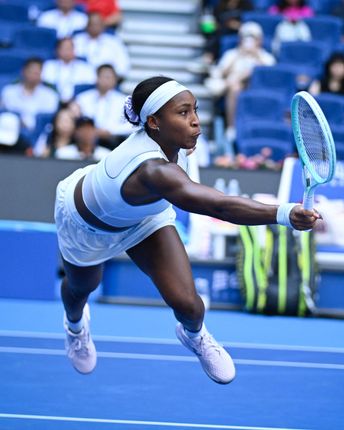Defending champion Sabalenka headlines Miami field; Eala to return to site of breakthrough
Read More



Match Reaction
View All
'One match can change everything': Gauff routs Eala, to face Svitolina in Dubai semis
5m read
18h ago
Player Feature
View all View all player features-
 Player Feature
Player FeatureDubai semifinal preview: Building the case for three Americans and Svitolina
4m read 16h ago -

-
 Player Feature
Player Feature'There's still a lot I need to learn': Jovic finds her footing in Top 20
4m read 3d ago -

-
 Player Feature
Player FeatureHow craft and consistency fueled Karolina Muchova’s dominant week in Doha
5m read 4d ago -
 Player Feature
Player FeatureInside the 'Player’s Box' podcast and the group chat that started it all
6m read 5d ago -

-
 Player Feature
Player FeatureHow craft and IQ defined Sara Bejlek’s run to the Abu Dhabi Open title
3m read 1w ago -
 Player Feature
Player FeatureDoha Media Day: Anisimova reflects on 2025 title, Rybakina's recharged
4m read 1w ago -
-
 Player Feature
Player FeatureWhy the Australian Open cemented Rybakina's position as a top-tier force
5m read 2w ago -
 Player Feature
Player FeatureFive things to know about Australian Open girls' champion Ksenia Efremova
3m read 2w ago
Social Buzz
View all View all social buzz
'It's such a prestigious brand': Gauff highlights Mercedes-Benz ambassador experience
2m read
3d ago
Tournament News
View all View all tournament news
Defending champion Sabalenka headlines Miami field; Eala to return to site of breakthrough
2m read
18h ago
Hot Shots
View all View all hot shotsStats Corner
View all View all stats cornerStories
Loading videos
Doubles News
All Doubles News All Doubles News-
 Match Reaction
Match ReactionDanilina and Krunic rally from 6-0, 5-2 down, save match point to win Doha title
3m read 5d ago -

-
 Social Buzz
Social BuzzRoom for more kibble! Watch Mertens reveal her AO trophy to her happy dogs
1m read 1w ago -
 Match Reaction
Match ReactionReunited and it feels so good! Mertens and Zhang win Australian Open doubles title
2m read 2w ago -
 Match Reaction
Match ReactionGadecki and Peers become first duo to repeat as Australian Open champs in 37 years
4m read 3w ago -
 Match Reaction
Match ReactionMertens and Zhang set to battle Danilina and Krunic for Australian Open title
3m read 3w ago -

-

-

-

How the Leylah Fernandez-Nick Kyrgios partnership came to be
2m read 3w ago -

-

'What a ride': US Open champs Dabrowski, Routliffe announce split
2m read 3mo ago
Previews
View all View all previews-
 Player Feature
Player FeatureDubai semifinal preview: Building the case for three Americans and Svitolina
4m read 16h ago -

-

-

-
 Tournament News
Tournament NewsA closer look at Saturday’s three finals, as Raducanu plays for a title again
3m read 1w ago -

-
 previews
previews4 burning questions ahead of Doha and Dubai: Will we have a first-time winner?
8m read 2w ago









































